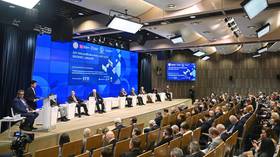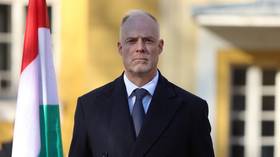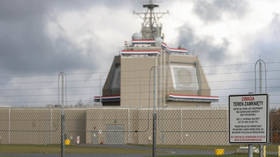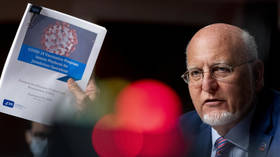India-Russia ties are on a ‘positive trajectory’ – foreign minister
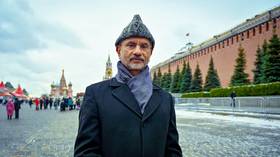
Subrahmanyam Jaishankar, India’s external affairs minister, has held talks with the Russian strategic community, including top foreign policy experts and researchers, during the first days of his official visit to Russia on a four-day trip that began on Monday.
The diplomat is in Russia as a part of the ongoing high-level exchanges between the two countries, according to the Indian Foreign Ministry’s statement.
Taking to X (formerly Twitter) on Monday, Jaishankar said he had “an open and forward-looking interaction” with members of the Russian strategic community, where he spoke of “the importance of rebalancing and the emergence of multipolarity.”
“Exchanged views on how India-Russia ties will develop in that framework. Also discussed connectivity, multilateralism, big power competition and regional conflicts,“ the diplomat noted. “Geopolitics and strategic convergence will always keep India-Russia ties on a positive trajectory.”
Jaishankar also shared a photo of himself with the Kremlin in the background, along with an image of a Soviet-era pass to Red Square, dated August 18, 1962, with his surname on it. The date marked a ceremony to honor the cosmonauts of ‘Sputnik-3’ and ‘Sputnik-4,’ Andriyan Nikolaev and Pavel Popovich.
How it started How it’s going pic.twitter.com/x70purbYzF
— Dr. S. Jaishankar (@DrSJaishankar) December 25, 2023
Jaishankar is believed to have visited Moscow in 1962 as a seven-year-old boy, along with his father, renowned strategic analyst K. Subrahmanyam, who served in the Ministry of Defense at the time, The Hindu newspaper noted. The now-foreign minister served as third secretary and second secretary in the Indian mission to the USSR from 1979 to 1981 and learned Russian during his two-year stay in Moscow.
On Wednesday, the Indian foreign minister will meet his counterpart, Sergey Lavrov, to discuss bilateral, multilateral, and international issues. He will also discuss the economic engagement between the two nations with Deputy Prime Minister and Minister of Industry and Trade Denis Manturov. The official talks will be followed by a meeting with the Indian diaspora and visits to cultural and educational institutions in Moscow and St. Petersburg to promote strong people-to-people and cultural ties.
Jaishankar’s visit to Moscow comes at a time when economic engagement between the two countries has reached record heights against the backdrop of Western sanctions against Russia. Bilateral trade has doubled this year, reaching $50 billion in the first nine months of 2023, according to official data. This is mainly due to New Delhi’s increased imports of Russian oil, coal, and other strategic goods, including defense procurements.
Issues such as diversifying trade flows and settling transactions in national currencies remain high on the bilateral agenda. Moscow has amassed a surplus of over $40 billion in special vostro accounts held in Indian banks in the domestic currency due to payment settlement issues after Russia was cut off from the most commonly used international payment system, SWIFT. Moscow has, on various occasions, called for “extra efforts” from the Indian side, predominantly financial institutions, to adopt the rupee-ruble payment mechanism at a bigger scale, given rising trade volumes.
While in Moscow, Jaishankar and Russian top officials are also expected to discuss strengthening maritime connectivity between the two countries. This includes speeding up work on operationalizing two trade corridors, the 7,200 km-long International North-South Transport Corridor (INSTC) that connects the two countries via the Caspian Sea and Iran, and the Vladivostok-Chennai route that can be used to transport coal, oil, liquefied natural gas, fertilizers, containers and other types of cargo.
Where India Meets Russia – We are now on WhatsApp! Follow and share RT India in English and in Hindi
